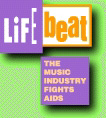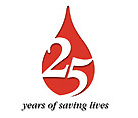BOBBY NELSON POE, SR.
April 13, 1933 - January 22, 2011
ORA MAE POE
May 11, 1934 - April 20, 2018
Bobby Poe's memories of his early days in the music business
 Here you will find information about a man that has spent his entire adult life in the music business. In his 50 years plus in that business, he has seen it all. He started out in the 1950's at age 22 as a performer and songwriter, then proceeded to become an artist manager, a record producer, a concert promoter and a music trade magazine publisher.
Here you will find information about a man that has spent his entire adult life in the music business. In his 50 years plus in that business, he has seen it all. He started out in the 1950's at age 22 as a performer and songwriter, then proceeded to become an artist manager, a record producer, a concert promoter and a music trade magazine publisher.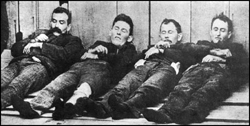 In 1892 Coffeyville, Kansas became famous in western folklore when the notorious Dalton Gang tried to best the Jesse James Gang by robbing two banks at the same time in broad daylight. The gritty citizens of Coffeyville almost killed the entire gang, including Bob and Grat Dalton. The only survivor was Emmett Dalton, who was shot twenty-two times but miraculously recovered to spend fifteen years in the penitentiary.
In 1892 Coffeyville, Kansas became famous in western folklore when the notorious Dalton Gang tried to best the Jesse James Gang by robbing two banks at the same time in broad daylight. The gritty citizens of Coffeyville almost killed the entire gang, including Bob and Grat Dalton. The only survivor was Emmett Dalton, who was shot twenty-two times but miraculously recovered to spend fifteen years in the penitentiary. My story begins in 1951 in that same city of Coffeyville, Kansas. I was a halfback on the state champion Coffeyville Red Ravens football team. During the next few years I finished college and started a family. I went to work fulltime and by 1955 I was Head of the Shipping Department for Jensen Brothers Oil Well Pump Jack Manufacturers. Elvis Presley had exploded that year, changing the music industry forever. I was amazed that one day he was driving a truck for $35.00 per week and the next day he was a millionaire. I figured if Elvis could do it, I could do it, so I used to walk around singing Elvis songs on the floor of the factory for our employees and they started calling me "Elvis".
My story begins in 1951 in that same city of Coffeyville, Kansas. I was a halfback on the state champion Coffeyville Red Ravens football team. During the next few years I finished college and started a family. I went to work fulltime and by 1955 I was Head of the Shipping Department for Jensen Brothers Oil Well Pump Jack Manufacturers. Elvis Presley had exploded that year, changing the music industry forever. I was amazed that one day he was driving a truck for $35.00 per week and the next day he was a millionaire. I figured if Elvis could do it, I could do it, so I used to walk around singing Elvis songs on the floor of the factory for our employees and they started calling me "Elvis".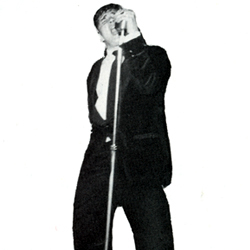 In December of 1955, there was a Christmas Party at the local nightclub The Casa Del. The club had a three piece Black Jazz band and after a few beers one of my co-workers bet me $20.00 that I didn't have the nerve to sing a song with the band. Twenty dollars in 1955 was a lot of money. So I took the bet. I asked the band to play "Love Me Tender" and of course they had never heard of it. I told them I'd sing it acapella and they could fill it as best they could. I sang the song and to my surprise, I got a standing ovation. The nightclub owner asked if I had a band. I said "No." He said, "Get one and you got a job." This was my entry into show business.
In December of 1955, there was a Christmas Party at the local nightclub The Casa Del. The club had a three piece Black Jazz band and after a few beers one of my co-workers bet me $20.00 that I didn't have the nerve to sing a song with the band. Twenty dollars in 1955 was a lot of money. So I took the bet. I asked the band to play "Love Me Tender" and of course they had never heard of it. I told them I'd sing it acapella and they could fill it as best they could. I sang the song and to my surprise, I got a standing ovation. The nightclub owner asked if I had a band. I said "No." He said, "Get one and you got a job." This was my entry into show business.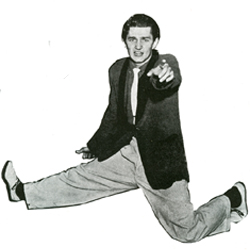 I went in search of musicians, visiting all the area dives and beer joints. The going rate for local musicians was $4.00 per night. Since I had a high paying day job, I picked the three best musicians I could find and offered them $8.00 per gig. We went to work at our local nightclub as promised by the owner. Since we were the first band to play Rock 'n' Roll in the area, needless to say, we became a local sensation.
I went in search of musicians, visiting all the area dives and beer joints. The going rate for local musicians was $4.00 per night. Since I had a high paying day job, I picked the three best musicians I could find and offered them $8.00 per gig. We went to work at our local nightclub as promised by the owner. Since we were the first band to play Rock 'n' Roll in the area, needless to say, we became a local sensation. One Saturday night on the way to the club for a gig, I had the radio on and I heard a young fellow singing "Blueberry Hill" at the local movie theater talent contest. I was blown away as he sounded just like Fats Domino. That young Black man was none other than sixteen year old Big Al Downing. I hired Big Al immediately, with him covering Fats Domino and Little Richard songs and me doing Elvis and Jerry Lee Lewis. We added Joe Brawley on drums, and with sixteen year old guitarist Vernon Sandusky and myself doing The Everly Brothers, we could play all of the hitmakers of the day and had the hottest band in the Southwest...
One Saturday night on the way to the club for a gig, I had the radio on and I heard a young fellow singing "Blueberry Hill" at the local movie theater talent contest. I was blown away as he sounded just like Fats Domino. That young Black man was none other than sixteen year old Big Al Downing. I hired Big Al immediately, with him covering Fats Domino and Little Richard songs and me doing Elvis and Jerry Lee Lewis. We added Joe Brawley on drums, and with sixteen year old guitarist Vernon Sandusky and myself doing The Everly Brothers, we could play all of the hitmakers of the day and had the hottest band in the Southwest...
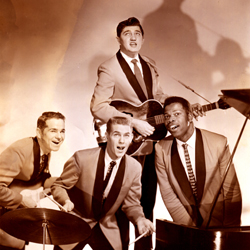 In 1956, we continued to play gigs on weekends at our local club The Casa Del and also a few college gigs. The turning point in my life came in 1957 as the The Poe Kats were gaining more and more popularity. A television station in Pittsburg, Kansas asked us to appear on an afternoon show. I asked for the day off, but I was told if I did the TV show I would be fired. Being naive - and with a wife and two young children - I elected to do the show to expose my band, and of course I was fired. But as the old adage says, everything happens for the best.
In 1956, we continued to play gigs on weekends at our local club The Casa Del and also a few college gigs. The turning point in my life came in 1957 as the The Poe Kats were gaining more and more popularity. A television station in Pittsburg, Kansas asked us to appear on an afternoon show. I asked for the day off, but I was told if I did the TV show I would be fired. Being naive - and with a wife and two young children - I elected to do the show to expose my band, and of course I was fired. But as the old adage says, everything happens for the best. During these early days, my naivety surfaced again when, being desperate for money, I wrote a song for Elvis and sent it to his producer, Chet Atkins (pictured here) of RCA Records in Nashville. Trying to force Mr. Atkins to react quickly, I proceeded to tell him to let me know immediately if he liked my song, as I had other "irons in the fire". My excitement over getting a response faded pretty quickly when Chet replied "take your irons out of the fire and insert your song". I was getting a rude awakening to the ups and downs of show business. Along those lines, my father, Nelson Poe, was a fine Country singer who was often heard on the radio in the Midwest, but never got his big break. He told me as I was starting out - and I quote - "Son, if someone in show business can get up one rung on the ladder by climbing over your back, they will do so." That quote has always stuck with me and over the years I found it to be prophetic.
During these early days, my naivety surfaced again when, being desperate for money, I wrote a song for Elvis and sent it to his producer, Chet Atkins (pictured here) of RCA Records in Nashville. Trying to force Mr. Atkins to react quickly, I proceeded to tell him to let me know immediately if he liked my song, as I had other "irons in the fire". My excitement over getting a response faded pretty quickly when Chet replied "take your irons out of the fire and insert your song". I was getting a rude awakening to the ups and downs of show business. Along those lines, my father, Nelson Poe, was a fine Country singer who was often heard on the radio in the Midwest, but never got his big break. He told me as I was starting out - and I quote - "Son, if someone in show business can get up one rung on the ladder by climbing over your back, they will do so." That quote has always stuck with me and over the years I found it to be prophetic.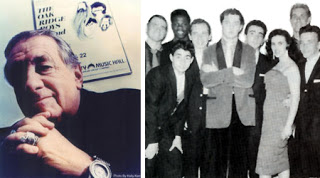 Just as I was ready to give up the music business and look for another job, the phone rang and it was Jim Halsey (pictured here), who was the Manager, Agent and Promoter of Country Music Hall of Famer Hank Thompson. He asked if I would come to see him. His office was fifteen miles away in Independence, Kansas. I rushed to see him hoping he would sign my band, but he had different ideas. He said he had signed a seventeen year old female singer that he was going to make the Queen of Rockabilly Music and he needed a great Rockabilly Band to back her up. Being broke, I took the job of my band backing the Queen of Rockabilly, Ms. Wanda Jackson. We worked with Ms. Jackson in 1957 and 1958, traveling all over the United States. Jim Halsey later became the Manager of the Oak Ridge Boys, which he has been for over 25 years. Shown here to the right of Jim Halsey is a picture from that time of Wanda and Bobby Poe and The Poe Kats at a gig with Danny and The Juniors.
Just as I was ready to give up the music business and look for another job, the phone rang and it was Jim Halsey (pictured here), who was the Manager, Agent and Promoter of Country Music Hall of Famer Hank Thompson. He asked if I would come to see him. His office was fifteen miles away in Independence, Kansas. I rushed to see him hoping he would sign my band, but he had different ideas. He said he had signed a seventeen year old female singer that he was going to make the Queen of Rockabilly Music and he needed a great Rockabilly Band to back her up. Being broke, I took the job of my band backing the Queen of Rockabilly, Ms. Wanda Jackson. We worked with Ms. Jackson in 1957 and 1958, traveling all over the United States. Jim Halsey later became the Manager of the Oak Ridge Boys, which he has been for over 25 years. Shown here to the right of Jim Halsey is a picture from that time of Wanda and Bobby Poe and The Poe Kats at a gig with Danny and The Juniors. When I hired African-American singer Big Al Downing, it never entered into my mind about the Jim Crow laws of the time, but I was soon to find out. On September 4th, 1957, Governor Orville Faubus of Arkansas called out The Arkansas National Guard to prevent nine African-American students from attending Little Rock Central High School in Little Rock, Arkansas. They became known as "The Little Rock Nine". That night Bobby Poe and The Poe Kats had a gig at The University of Arkansas. Integrated bands were not the norm, to say the least, in 1957. What could have been a recipe for disaster turned into a tribute to the human spirit. We played the gig. The crowd of college kids swarmed around African-American piano player Big Al Downing with extreme excitement when Big Al played the Fats Domino and Little Richard numbers we always performed. The only unpleasant reminder of segregation that evening was that Big Al couldn't leave the stage to go to the bathroom because the toilets were "Whites Only". It would take almost the rest of the month before President Dwight Eisenhower intervened and "The Little Rock Nine" were allowed into the school.
When I hired African-American singer Big Al Downing, it never entered into my mind about the Jim Crow laws of the time, but I was soon to find out. On September 4th, 1957, Governor Orville Faubus of Arkansas called out The Arkansas National Guard to prevent nine African-American students from attending Little Rock Central High School in Little Rock, Arkansas. They became known as "The Little Rock Nine". That night Bobby Poe and The Poe Kats had a gig at The University of Arkansas. Integrated bands were not the norm, to say the least, in 1957. What could have been a recipe for disaster turned into a tribute to the human spirit. We played the gig. The crowd of college kids swarmed around African-American piano player Big Al Downing with extreme excitement when Big Al played the Fats Domino and Little Richard numbers we always performed. The only unpleasant reminder of segregation that evening was that Big Al couldn't leave the stage to go to the bathroom because the toilets were "Whites Only". It would take almost the rest of the month before President Dwight Eisenhower intervened and "The Little Rock Nine" were allowed into the school. When Wanda first started out, she and Elvis Presley became very close. Wanda to this day still wears a ring Elvis gave her around her neck. Elvis was instrumental in persuading Wanda to record her now trademark Rockabilly music, and in particular her signature song "Let's Have A Party". "The King" had even recorded "Let's Have a Party" himself (known then simply as "Party"), for the soundtrack of his film "Lovin' You". Forty years later Sir Paul McCartney would record versions of "(Let's Have A) Party" for his studio CD "Run Devil Run" and his roots DVD "Live At The Cavern Club".
When Wanda first started out, she and Elvis Presley became very close. Wanda to this day still wears a ring Elvis gave her around her neck. Elvis was instrumental in persuading Wanda to record her now trademark Rockabilly music, and in particular her signature song "Let's Have A Party". "The King" had even recorded "Let's Have a Party" himself (known then simply as "Party"), for the soundtrack of his film "Lovin' You". Forty years later Sir Paul McCartney would record versions of "(Let's Have A) Party" for his studio CD "Run Devil Run" and his roots DVD "Live At The Cavern Club". As Jim Halsey had so accurately predicted, Wanda Jackson's career exploded and she truly did become the "Queen of Rockabilly". In early 1958, we worked our way across the country to Hollywood and notably The Capitol Tower for Wanda to do a recording session. Wanda used the Poe Kat Band. To get a fuller sound, Ken Nelson her A&R Director brought in Buck Owens on rhythm guitar (Buck was just starting his career) and Skeets McDonald on bass. Since I didn't play an instrument, I had free time to hang out at The Brown Derby for lunch and the lobby of The Ambassador Hotel. I met many movie stars there including my favorite actress Gail Russell, as well as Rex Allen, Thelma Ritter, Henry Hull, Mike Mazurki, Spike Jones, Robert Fuller, Kay Starr and Tennessee Ernie Ford.
As Jim Halsey had so accurately predicted, Wanda Jackson's career exploded and she truly did become the "Queen of Rockabilly". In early 1958, we worked our way across the country to Hollywood and notably The Capitol Tower for Wanda to do a recording session. Wanda used the Poe Kat Band. To get a fuller sound, Ken Nelson her A&R Director brought in Buck Owens on rhythm guitar (Buck was just starting his career) and Skeets McDonald on bass. Since I didn't play an instrument, I had free time to hang out at The Brown Derby for lunch and the lobby of The Ambassador Hotel. I met many movie stars there including my favorite actress Gail Russell, as well as Rex Allen, Thelma Ritter, Henry Hull, Mike Mazurki, Spike Jones, Robert Fuller, Kay Starr and Tennessee Ernie Ford. At this session at The Capitol Tower, Wanda recorded with my band her signature hit, the aforementioned "Let's Have a Party". When we arrived back home from Wanda's Hollywood tour, I got a phone call from a disk jockey named Jim Lowe of WRR Radio in Dallas, Texas. He had a famous radio show called "Kat's Caravan". He told me he had seen one of our shows in Oklahoma and said he had a record label called White Rock Records. He asked us to sign with his label, both Big Al Downing and me, as individual artists. Big Al's first single "Down On The Farm", was originally going to be put out under the name of Bobby Poe and The Poe Kats, but since Big Al sang lead vocals, I didn't want that. "Down On The Farm" became a #1 record in the state of Texas and was bought by Gene Autry's new label Challenge Records. Just last year - or almost 50 years later - Rhino Records put "Down On The Farm" on their extensive CD box set "Rockin' Bones: 1950s Punk and Rockabilly". The track can also be found (along with the later Big Al solo single "Touch Me") on the CD box set "From Where I Stand: The Black Experience In Country Music".
At this session at The Capitol Tower, Wanda recorded with my band her signature hit, the aforementioned "Let's Have a Party". When we arrived back home from Wanda's Hollywood tour, I got a phone call from a disk jockey named Jim Lowe of WRR Radio in Dallas, Texas. He had a famous radio show called "Kat's Caravan". He told me he had seen one of our shows in Oklahoma and said he had a record label called White Rock Records. He asked us to sign with his label, both Big Al Downing and me, as individual artists. Big Al's first single "Down On The Farm", was originally going to be put out under the name of Bobby Poe and The Poe Kats, but since Big Al sang lead vocals, I didn't want that. "Down On The Farm" became a #1 record in the state of Texas and was bought by Gene Autry's new label Challenge Records. Just last year - or almost 50 years later - Rhino Records put "Down On The Farm" on their extensive CD box set "Rockin' Bones: 1950s Punk and Rockabilly". The track can also be found (along with the later Big Al solo single "Touch Me") on the CD box set "From Where I Stand: The Black Experience In Country Music". My first record "Rock and Roll Record Girl" was also a #1 record in Texas. Sam Phillips of Sun Records was going to buy the master for release on his red hot label which included Elvis, Jerry Lee Lewis, Roy Orbison, Johnny Cash, Charlie Rich, and Carl Perkins. I thought we were on our way to stardom, but our hopes were dashed when the publisher, Wesley Rose of Acuff-Rose, would not give permission to release the song because I had written my own lyrics to the tune of their well known standard "Chattanooga Shoeshine Boy". The record was squashed and thus no big hit. The only good news is that to this day "Rock and Roll Record Girl" is one of the most sought after Rockabilly collectors items in the music world.
My first record "Rock and Roll Record Girl" was also a #1 record in Texas. Sam Phillips of Sun Records was going to buy the master for release on his red hot label which included Elvis, Jerry Lee Lewis, Roy Orbison, Johnny Cash, Charlie Rich, and Carl Perkins. I thought we were on our way to stardom, but our hopes were dashed when the publisher, Wesley Rose of Acuff-Rose, would not give permission to release the song because I had written my own lyrics to the tune of their well known standard "Chattanooga Shoeshine Boy". The record was squashed and thus no big hit. The only good news is that to this day "Rock and Roll Record Girl" is one of the most sought after Rockabilly collectors items in the music world.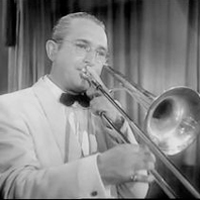 So we loaded up and headed to Dick Clark's city, Philadelphia. On our way east, we stopped and played a gig at the Fort Leonardwood, Missouri Army Base. It was the third time we had played the base and each time we played to larger and larger crowds. After this performance, we were thrilled when it was reported that Bobby Poe and The Poe Kats had broken the attendance record of Tommy Dorsey and his Orchestra. That was pretty heady accolades for a four piece band to break the long standing record of a legendary orchestra.
So we loaded up and headed to Dick Clark's city, Philadelphia. On our way east, we stopped and played a gig at the Fort Leonardwood, Missouri Army Base. It was the third time we had played the base and each time we played to larger and larger crowds. After this performance, we were thrilled when it was reported that Bobby Poe and The Poe Kats had broken the attendance record of Tommy Dorsey and his Orchestra. That was pretty heady accolades for a four piece band to break the long standing record of a legendary orchestra.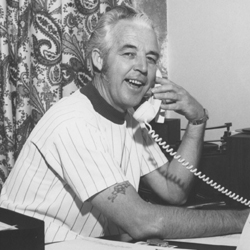 In 1959, a man named Lelan Rogers (pictured here), who was the older brother of future superstar Kenny Rogers, was working for Carlton Records as a producer. Our contract with White Rock Records had expired and he wanted to produce a session in New Orleans with Big Al Downing. Big Al signed a two record deal. We flew Big Al down to New Orleans and he recorded "Miss Lucy" and "When My Blue Moon Turns To Gold Again". Both singles failed to generate any attention. However, Lelan Rogers would become my mentor and close personal friend for the next 44 years.
In 1959, a man named Lelan Rogers (pictured here), who was the older brother of future superstar Kenny Rogers, was working for Carlton Records as a producer. Our contract with White Rock Records had expired and he wanted to produce a session in New Orleans with Big Al Downing. Big Al signed a two record deal. We flew Big Al down to New Orleans and he recorded "Miss Lucy" and "When My Blue Moon Turns To Gold Again". Both singles failed to generate any attention. However, Lelan Rogers would become my mentor and close personal friend for the next 44 years.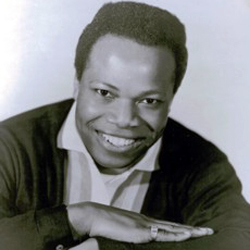 In analyzing the band's situation, I decided with a wife and two young children that although I was a fine entertainer, I no longer had the will or the vocal talent to continue pursuing a career as a singer. I quit the band and took over as Manager/Producer. I had heard great things about a popular nightclub in Washington, D.C. that paid the top dollar of $1,000 per week for their entertainment. I called the owner of the club and tried to sell Big Al Downing (shown here) as the leader of the band. He said, "Did you say you had a Black man in your band?" I answered, "Yes." He said, "I don't hire Black people, as they draw Black people and we don't let them in." This was 1960 in the Nation's Capitol, a city that was 78 percent Black! I couldn't believe my ears. I decided to make him an offer he could not refuse. I told him that the band would play a week for nothing. If he liked them he would pay them the $1,000 and if not he wouldn't have to pay the band anything. He jumped on that deal, thinking he would get a free band. I believed in my band and I knew they would blow away his patrons.
In analyzing the band's situation, I decided with a wife and two young children that although I was a fine entertainer, I no longer had the will or the vocal talent to continue pursuing a career as a singer. I quit the band and took over as Manager/Producer. I had heard great things about a popular nightclub in Washington, D.C. that paid the top dollar of $1,000 per week for their entertainment. I called the owner of the club and tried to sell Big Al Downing (shown here) as the leader of the band. He said, "Did you say you had a Black man in your band?" I answered, "Yes." He said, "I don't hire Black people, as they draw Black people and we don't let them in." This was 1960 in the Nation's Capitol, a city that was 78 percent Black! I couldn't believe my ears. I decided to make him an offer he could not refuse. I told him that the band would play a week for nothing. If he liked them he would pay them the $1,000 and if not he wouldn't have to pay the band anything. He jumped on that deal, thinking he would get a free band. I believed in my band and I knew they would blow away his patrons. Job security gave me a chance to work on Big Al's career, which was now on the upswing. Clyde Otis, a well respected record producer for Mercury Records, had cut a ton of hits for Dinah Washington and Brook Benton, both as singles and duets. In 1963, I called Lelan Rogers who had just produced a million selling record by Esther Phillips titled "Release Me" on Lenox Records. I suggested we copy Clyde Otis' strategy and cut a duet with Esther Phillips and Big Al Downing. He flipped over the idea and as soon as he found material, Big Al and I flew to Nashville for the session. The song was "You Never Miss Your Water 'Til The Well Runs Dry". Also, we cut a single on Big Al titled "Mr. Hurt". The duet with Esther Phillips was released first and hit the charts in the #90 spot, but soon fizzled out. Big Al's "Mr. Hurt" was released two months later in 1963. It went immediately on Dick Clark's "American Bandstand". But just as the record was exploding, Lenox Records went belly up.
Job security gave me a chance to work on Big Al's career, which was now on the upswing. Clyde Otis, a well respected record producer for Mercury Records, had cut a ton of hits for Dinah Washington and Brook Benton, both as singles and duets. In 1963, I called Lelan Rogers who had just produced a million selling record by Esther Phillips titled "Release Me" on Lenox Records. I suggested we copy Clyde Otis' strategy and cut a duet with Esther Phillips and Big Al Downing. He flipped over the idea and as soon as he found material, Big Al and I flew to Nashville for the session. The song was "You Never Miss Your Water 'Til The Well Runs Dry". Also, we cut a single on Big Al titled "Mr. Hurt". The duet with Esther Phillips was released first and hit the charts in the #90 spot, but soon fizzled out. Big Al's "Mr. Hurt" was released two months later in 1963. It went immediately on Dick Clark's "American Bandstand". But just as the record was exploding, Lenox Records went belly up. In the meantime, since Big Al had become a tremendous song writer, I got him a contract in 1964 to write songs for Fats Domino, with me being the co-publisher of the songs. Domino recorded five of the songs and two became hits: "Heartbreak Hill" and "Mary Oh Mary". Both singles can be found on the Fats Domino album shown here, "The Paramount Tapes". With Big Al writing for Fats Domino and recording for Columbia Records, his band The Rhythm Rockers were getting restless, as they had played the same club in D.C. for four years. In late 1963, the British Invasion started with The Beatles, who exploded on the U.S. scene in early 1964. To keep the band happy and lay down some British Invasion-style music, I took them into the studio to cut two sides on their own, "She's The One" and "Slippin' Thru Your Fingers". In the back of my mind I was hoping that I would have two hit acts with basically one band.
In the meantime, since Big Al had become a tremendous song writer, I got him a contract in 1964 to write songs for Fats Domino, with me being the co-publisher of the songs. Domino recorded five of the songs and two became hits: "Heartbreak Hill" and "Mary Oh Mary". Both singles can be found on the Fats Domino album shown here, "The Paramount Tapes". With Big Al writing for Fats Domino and recording for Columbia Records, his band The Rhythm Rockers were getting restless, as they had played the same club in D.C. for four years. In late 1963, the British Invasion started with The Beatles, who exploded on the U.S. scene in early 1964. To keep the band happy and lay down some British Invasion-style music, I took them into the studio to cut two sides on their own, "She's The One" and "Slippin' Thru Your Fingers". In the back of my mind I was hoping that I would have two hit acts with basically one band.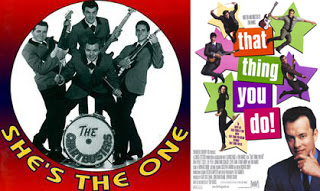 I sent the two song demo tape out as The Chartbusters to forty-five record companies. Forty-four labels turned it down, but Harry Finfer, a legend in the record business, had started a new label with Sam Hodge called Mutual Records. Previously Harry had discovered Duane Eddy while he was Owner/President of Jamie Records, a label he named after his daughter. Harry gave me $4,000 for the rights to release the single. "She's The One" became an instant hit, selling 750,000 records and reaching #33 in the Billboard charts against stiff competition. Years later Tom Hanks would tell People Magazine in an interview that The Chartbusters were one of the inspirations for his film "That Thing You Do!".
I sent the two song demo tape out as The Chartbusters to forty-five record companies. Forty-four labels turned it down, but Harry Finfer, a legend in the record business, had started a new label with Sam Hodge called Mutual Records. Previously Harry had discovered Duane Eddy while he was Owner/President of Jamie Records, a label he named after his daughter. Harry gave me $4,000 for the rights to release the single. "She's The One" became an instant hit, selling 750,000 records and reaching #33 in the Billboard charts against stiff competition. Years later Tom Hanks would tell People Magazine in an interview that The Chartbusters were one of the inspirations for his film "That Thing You Do!".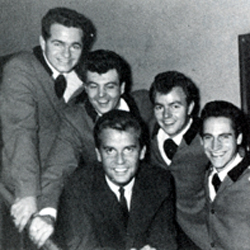 The Chartbusters were euphoric over their immediate success. The band performed on Dick Clark's "American Bandstand", which had been a dream of mine and Vernon's. Shown here is a picture backstage with Dick Clark. However, all of this sudden attention on The Chartbusters caused a giant problem since they were supposed to be Big Al Downing's backing band. Big Al was upset with me and the band because they got a Top 40 hit before he did and were suddenly all over the media. Big Al fired me and the boys and got himself a new band. At that time our careers parted ways. Big Al went his way and Vernon Sandusky and I went ours. Big Al and his band continued to play at the nightclub until 1968...
The Chartbusters were euphoric over their immediate success. The band performed on Dick Clark's "American Bandstand", which had been a dream of mine and Vernon's. Shown here is a picture backstage with Dick Clark. However, all of this sudden attention on The Chartbusters caused a giant problem since they were supposed to be Big Al Downing's backing band. Big Al was upset with me and the band because they got a Top 40 hit before he did and were suddenly all over the media. Big Al fired me and the boys and got himself a new band. At that time our careers parted ways. Big Al went his way and Vernon Sandusky and I went ours. Big Al and his band continued to play at the nightclub until 1968...
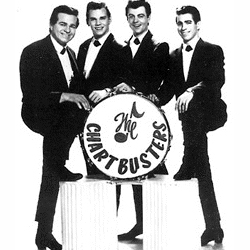 Vernon Sandusky became leader of The Chartbusters in May of 1964. I had always wanted to build an entertainment conglomerate built along the lines of Berry Gordy's Motown empire. Vernon and I took in as a partner Mitch Corday, Big Al's drummer. His job was to book The Chartbusters, mine was to manage and produce the group's recordings, and Vernon's job was to keep the band performing smoothly on the road since that's where our immediate income would be coming from. We set up an office in D.C.'s Georgetown, a wealthy section where a lot of politicians and celebrities lived, such as Jackie Kennedy and Henry Kissinger to name a couple.
Vernon Sandusky became leader of The Chartbusters in May of 1964. I had always wanted to build an entertainment conglomerate built along the lines of Berry Gordy's Motown empire. Vernon and I took in as a partner Mitch Corday, Big Al's drummer. His job was to book The Chartbusters, mine was to manage and produce the group's recordings, and Vernon's job was to keep the band performing smoothly on the road since that's where our immediate income would be coming from. We set up an office in D.C.'s Georgetown, a wealthy section where a lot of politicians and celebrities lived, such as Jackie Kennedy and Henry Kissinger to name a couple.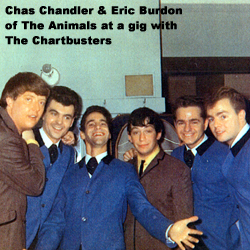 Mitch started booking The Chartbusters and I signed other hit groups to manage, such as The Kalin Twins, Jimmy Jones and Willie and The Handjives. The Kalin Twins had a million selling record in the late 1950's titled "When". Jimmy Jones had recently had a million selling record titled "Handyman". We also promoted concerts and were the first promoters to bring The Beach Boys into the Baltimore/Washington, D.C. market, where they always drew sellout crowds. As for The Chartbusters, with a national hit under their belt, the group generated so many gigs that Mitch Corday had to hire two more agents to book the band. The band played big gigs with many of the stars of the day, including The Animals, Johnny Rivers, Jan & Dean, The Four Seasons and The Lovin' Spoonful.
Mitch started booking The Chartbusters and I signed other hit groups to manage, such as The Kalin Twins, Jimmy Jones and Willie and The Handjives. The Kalin Twins had a million selling record in the late 1950's titled "When". Jimmy Jones had recently had a million selling record titled "Handyman". We also promoted concerts and were the first promoters to bring The Beach Boys into the Baltimore/Washington, D.C. market, where they always drew sellout crowds. As for The Chartbusters, with a national hit under their belt, the group generated so many gigs that Mitch Corday had to hire two more agents to book the band. The band played big gigs with many of the stars of the day, including The Animals, Johnny Rivers, Jan & Dean, The Four Seasons and The Lovin' Spoonful.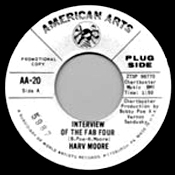 With The Chartbusters rolling and excitement in the air over all of the new music coming out of England, I got together with my buddy Harv Moore from powerhouse radio station WPGC and we produced a record called "Interview Of The Fab Four". We sold the master to the American Arts Recording Company, which at the time was the record label of British Invasion Superstars Chad & Jeremy. It was a Dickie Goodman-style track where Harv pretended to interview The Beatles and their responses would be little snippets from their songs. Not only was it was very funny, it took off like a rocket with radio and distributors pre-ordered 500,000 copies. The Beatles' Manager Brian Epstein immediately killed the single by threatening to sue. In a way, American Arts was fortunate that they did not have to pay for the 500,000 copies since they had not been pressed yet. In a rush to release the record, the label hadn't secured the rights to use any of the various bits of Beatles' songs that were included on the single. Another hit down the tubes!
With The Chartbusters rolling and excitement in the air over all of the new music coming out of England, I got together with my buddy Harv Moore from powerhouse radio station WPGC and we produced a record called "Interview Of The Fab Four". We sold the master to the American Arts Recording Company, which at the time was the record label of British Invasion Superstars Chad & Jeremy. It was a Dickie Goodman-style track where Harv pretended to interview The Beatles and their responses would be little snippets from their songs. Not only was it was very funny, it took off like a rocket with radio and distributors pre-ordered 500,000 copies. The Beatles' Manager Brian Epstein immediately killed the single by threatening to sue. In a way, American Arts was fortunate that they did not have to pay for the 500,000 copies since they had not been pressed yet. In a rush to release the record, the label hadn't secured the rights to use any of the various bits of Beatles' songs that were included on the single. Another hit down the tubes!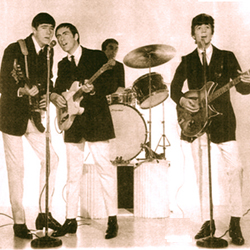 It was also around this time that Mitch Corday wanted to branch out and work with a new group called The British Walkers. The founding members of The British Walkers were Bobbie Howard (lead vocals), Roy Buchanan (lead guitar), Junior Gill (bass) and Mike Kennedy (drums) (shown in the photo here L-R: Junior; Roy; Mike; and Bobbie). Roy became known as one of the best blues guitarists in the world and was asked to join The Rolling Stones after Brian Jones was told he was out. Sadly, in the 1980's Roy hanged himself in his jail cell after being arrested for public intoxication. At least that is listed as the "official" cause of death. Serious bruises to Roy's head were never explained and it has been documented that Roy had been beaten about the head by local police before. In any event, in 1967, after many personnel changes, John Hall became leader of the band just as they were exploding with a hit record titled "Shake" on Neil Bogart's Cameo Parkway Records. "Shake" quickly reached #32 on the Billboard charts, but died - along with other label chart entries by Bunny Sigler and Bob Brady and The Con Chords - when Allen Klein purchased the label and pulled the plug. Myself and the management of the other two acts to this day can't figure out why Allen Klein would not ship product to distributors when he had three hits in the charts.
It was also around this time that Mitch Corday wanted to branch out and work with a new group called The British Walkers. The founding members of The British Walkers were Bobbie Howard (lead vocals), Roy Buchanan (lead guitar), Junior Gill (bass) and Mike Kennedy (drums) (shown in the photo here L-R: Junior; Roy; Mike; and Bobbie). Roy became known as one of the best blues guitarists in the world and was asked to join The Rolling Stones after Brian Jones was told he was out. Sadly, in the 1980's Roy hanged himself in his jail cell after being arrested for public intoxication. At least that is listed as the "official" cause of death. Serious bruises to Roy's head were never explained and it has been documented that Roy had been beaten about the head by local police before. In any event, in 1967, after many personnel changes, John Hall became leader of the band just as they were exploding with a hit record titled "Shake" on Neil Bogart's Cameo Parkway Records. "Shake" quickly reached #32 on the Billboard charts, but died - along with other label chart entries by Bunny Sigler and Bob Brady and The Con Chords - when Allen Klein purchased the label and pulled the plug. Myself and the management of the other two acts to this day can't figure out why Allen Klein would not ship product to distributors when he had three hits in the charts. Vernon left to work with Country Music Hall of Famer Roy Clark and was in his band for twenty-two years. After Vernon left, Mitch and I were approached by Jack Boyle, a bartender at a happening club called The Cellar Door. The Mamas and The Papas had become a Superstar group and were then at their peak. Jack asked us to become his partners promoting music concerts. He said Cass Elliot had borrowed $10,000 from him to form The Mamas and The Papas and they had agreed to pay him back by giving him a free concert to promote. Mitch and I made the mistake of our lives by turning him down. This concert established Jack's new enterprise Cellar Door Productions. Twenty-five years later Jack sold Cellar Door Productions for several million dollars. It's not that we didn't believe in Jack Boyle, he just approached us at the wrong time. We were both burned out on dealing with Rock 'n' Rollers and going through three arrests didn't help matters...
Vernon left to work with Country Music Hall of Famer Roy Clark and was in his band for twenty-two years. After Vernon left, Mitch and I were approached by Jack Boyle, a bartender at a happening club called The Cellar Door. The Mamas and The Papas had become a Superstar group and were then at their peak. Jack asked us to become his partners promoting music concerts. He said Cass Elliot had borrowed $10,000 from him to form The Mamas and The Papas and they had agreed to pay him back by giving him a free concert to promote. Mitch and I made the mistake of our lives by turning him down. This concert established Jack's new enterprise Cellar Door Productions. Twenty-five years later Jack sold Cellar Door Productions for several million dollars. It's not that we didn't believe in Jack Boyle, he just approached us at the wrong time. We were both burned out on dealing with Rock 'n' Rollers and going through three arrests didn't help matters...
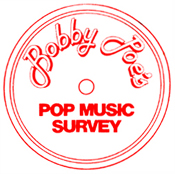 In April 1968, Mitch Corday and I started Soul Music Survey, a Rhythm and Blues Record report; Pop Music Survey, a Pop/Top 40 Music report; and Country Music Survey, a Country Music report. We hired my old friend Harv Moore, a well respected local D.J. at WPGC, to be Editor of Pop Music Survey. We hired Tom McEntee away from Cash Box Magazine to be Editor of Country Music Survey. We hired a young black woman, Dee Dee Dabney, away from a top R&B station in Philadelphia to be Editor of Soul Music Survey.
In April 1968, Mitch Corday and I started Soul Music Survey, a Rhythm and Blues Record report; Pop Music Survey, a Pop/Top 40 Music report; and Country Music Survey, a Country Music report. We hired my old friend Harv Moore, a well respected local D.J. at WPGC, to be Editor of Pop Music Survey. We hired Tom McEntee away from Cash Box Magazine to be Editor of Country Music Survey. We hired a young black woman, Dee Dee Dabney, away from a top R&B station in Philadelphia to be Editor of Soul Music Survey.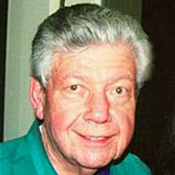 Later on in 1968, our music industry trade publications were struggling for subscriptions when out of the air we received an order for 50 subscriptions to each publication from Shelby Singleton of Sun Records (shown here in a recent picture). That order of $15,000 was a huge amount of money in 1968 and it saved us from going under. Soul Music Survey was starting to explode at that time and was becoming the cash cow of the three surveys. As for Shelby, he remains a great friend and I'm happy to say that at the time he scored a huge Pop and Country hit with Jeannie C. Riley's "Harper Valley P.T.A.".
Later on in 1968, our music industry trade publications were struggling for subscriptions when out of the air we received an order for 50 subscriptions to each publication from Shelby Singleton of Sun Records (shown here in a recent picture). That order of $15,000 was a huge amount of money in 1968 and it saved us from going under. Soul Music Survey was starting to explode at that time and was becoming the cash cow of the three surveys. As for Shelby, he remains a great friend and I'm happy to say that at the time he scored a huge Pop and Country hit with Jeannie C. Riley's "Harper Valley P.T.A.".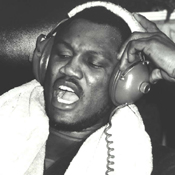 Once Soul Music Survey became established, celebrities like Joe Frazier (pictured here), the Heavyweight Champion of the World, and NFL Hall of Famers Jim Brown and Roosevelt Grier took me to dinner. Frazier was promoting his own record by Joe Frazier and his band The Knockouts. Jim Brown was promoting a vocal group, The Friends of Distinction. Roosevelt Grier was also promoting his own record and was a personal favorite of mine during his football days. It had only been a couple months before that Roosevelt had been a part of Robert Kennedy's entourage and was there when Robert Kennedy was assassinated.
Once Soul Music Survey became established, celebrities like Joe Frazier (pictured here), the Heavyweight Champion of the World, and NFL Hall of Famers Jim Brown and Roosevelt Grier took me to dinner. Frazier was promoting his own record by Joe Frazier and his band The Knockouts. Jim Brown was promoting a vocal group, The Friends of Distinction. Roosevelt Grier was also promoting his own record and was a personal favorite of mine during his football days. It had only been a couple months before that Roosevelt had been a part of Robert Kennedy's entourage and was there when Robert Kennedy was assassinated.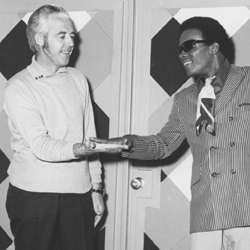 In late Summer of 1968 my mentor Lelan Rogers (pictured here with Rock and Roll Hall of Famer Hank Ballard), who was working as Promotion Director of Roulette Records, entered my life again with a phone call, telling me NOT to go to an upcoming R&B Convention in Miami, as I may not come back in one piece if I went. After the assassinations of Robert Kennedy and Martin Luther King earlier in the year, Lelan told me that there had sprung up a Black commitee that did not want White people controlling Black Music. Needless to say, I did not go to the Convention. The next week Lelan told me he had seen a list on an executive's desk in a Black record company's office. He told me that number one on the list to be dealt with was Jerry Wexler, one of the founders of Atlantic Records. Number two on the list was me, Bobby Poe. Number three was Dick Lillard of the top Soul station in Washington, D.C., WOL and number four was Marshall Seahorn, a record producer in New Orleans. I felt Lelan easily kept me from being hurt, or worse. Shortly thereafter Lelan called me and told me everything was okay now, as the fellow behind the committee was found murdered - he must have stepped on the wrong toes...
In late Summer of 1968 my mentor Lelan Rogers (pictured here with Rock and Roll Hall of Famer Hank Ballard), who was working as Promotion Director of Roulette Records, entered my life again with a phone call, telling me NOT to go to an upcoming R&B Convention in Miami, as I may not come back in one piece if I went. After the assassinations of Robert Kennedy and Martin Luther King earlier in the year, Lelan told me that there had sprung up a Black commitee that did not want White people controlling Black Music. Needless to say, I did not go to the Convention. The next week Lelan told me he had seen a list on an executive's desk in a Black record company's office. He told me that number one on the list to be dealt with was Jerry Wexler, one of the founders of Atlantic Records. Number two on the list was me, Bobby Poe. Number three was Dick Lillard of the top Soul station in Washington, D.C., WOL and number four was Marshall Seahorn, a record producer in New Orleans. I felt Lelan easily kept me from being hurt, or worse. Shortly thereafter Lelan called me and told me everything was okay now, as the fellow behind the committee was found murdered - he must have stepped on the wrong toes...
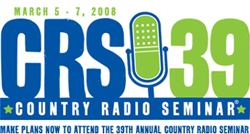 In September of 1969, Tom McEntee came to me with the idea to present a Country Music Seminar for record promoters and radio programmers, which would be held in March of 1970. I loved his idea and would later follow up in 1973 with a Pop Music Seminar and Convention of my own. Tom McEntee got Country Music Hall of Famer Tex Ritter as Keynote Speaker. Country Music Seminar #1 (now known as Country Radio Seminar) was a huge success and it looked like Country Music Survey would be a successful operation.
In September of 1969, Tom McEntee came to me with the idea to present a Country Music Seminar for record promoters and radio programmers, which would be held in March of 1970. I loved his idea and would later follow up in 1973 with a Pop Music Seminar and Convention of my own. Tom McEntee got Country Music Hall of Famer Tex Ritter as Keynote Speaker. Country Music Seminar #1 (now known as Country Radio Seminar) was a huge success and it looked like Country Music Survey would be a successful operation. Then in May of 1970, two Black men came to my office in Georgetown while my staff was at lunch. I thought they were record promoters. One man said to me, "We are here to sell you insurance." I said, "I don't need any insurance." He proceeded to rip my shirt off of me. Then he handed me a business card and told me to send $1,000 per week to a P.O. Box in Queens, New York. I was shaken, but with what had happened in 1968 and the person behind that incident dead, I thought it must have been a joke. Ten days later two men again came to my office at lunch time with the staff out. The only one in the office was my partner, Mitch Corday. They asked to see me. Mitch told them I was out of town, but he was my partner, could he help them. They proceeded to break both of Mitch's legs with tire irons and left him passed out from agony. When the staff returned from lunch, they had him rushed to a hospital. It was nine months before he could walk again.
Then in May of 1970, two Black men came to my office in Georgetown while my staff was at lunch. I thought they were record promoters. One man said to me, "We are here to sell you insurance." I said, "I don't need any insurance." He proceeded to rip my shirt off of me. Then he handed me a business card and told me to send $1,000 per week to a P.O. Box in Queens, New York. I was shaken, but with what had happened in 1968 and the person behind that incident dead, I thought it must have been a joke. Ten days later two men again came to my office at lunch time with the staff out. The only one in the office was my partner, Mitch Corday. They asked to see me. Mitch told them I was out of town, but he was my partner, could he help them. They proceeded to break both of Mitch's legs with tire irons and left him passed out from agony. When the staff returned from lunch, they had him rushed to a hospital. It was nine months before he could walk again.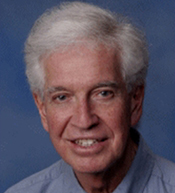 In 1971, I'm back to square one - broke. I caught a break, sort of, when my Editor of Pop Music Survey, Harv Moore, got the Program Director's job at 50,000 watt radio station WPGC. Harv, who remains one of my best friends and is shown here in a recent picture, had to resign as my Editor because it was a conflict of interest, so I saved having to pay his salary. Now I was the Publisher as well as the Editor of Pop Music Survey. The magazine struggled along barely making it. The only way I could keep the Survey alive was with the help of my wife Ora Mae, who had to continue working full time to keep me publishing.
In 1971, I'm back to square one - broke. I caught a break, sort of, when my Editor of Pop Music Survey, Harv Moore, got the Program Director's job at 50,000 watt radio station WPGC. Harv, who remains one of my best friends and is shown here in a recent picture, had to resign as my Editor because it was a conflict of interest, so I saved having to pay his salary. Now I was the Publisher as well as the Editor of Pop Music Survey. The magazine struggled along barely making it. The only way I could keep the Survey alive was with the help of my wife Ora Mae, who had to continue working full time to keep me publishing. In 1972, I decided I had to do something high profile, take a gamble and roll the dice for all or nothing. Again it was Lelan Rogers to the rescue. Lelan was in D.C. with his brother, Kenny Rogers (shown here), who at that time had a big hit group Kenny Rogers and The First Edition. Lelan said he wanted me and Kenny to meet, so I met them at the Mayflower Hotel for breakfast. I told them that Pop Music Survey was dying on the vine. But I had an idea to make the Survey a major player in the Radio/Record business. I wanted to throw a Seminar like the Country Music Seminar in Nashville that had turned into a monstrous success. I explained to Kenny how I had been forced to give up that Seminar because I didn't have the income from Soul Music Survey to keep it going. I said I wanted to have a Pop Music Convention and Seminar, including a celebrity golf tournament. Kenny said he thought that it was a great idea and then asked what was stopping me. I said I needed $1,000 to buy a full-page add in Billboard, the top industry trade magazine.
In 1972, I decided I had to do something high profile, take a gamble and roll the dice for all or nothing. Again it was Lelan Rogers to the rescue. Lelan was in D.C. with his brother, Kenny Rogers (shown here), who at that time had a big hit group Kenny Rogers and The First Edition. Lelan said he wanted me and Kenny to meet, so I met them at the Mayflower Hotel for breakfast. I told them that Pop Music Survey was dying on the vine. But I had an idea to make the Survey a major player in the Radio/Record business. I wanted to throw a Seminar like the Country Music Seminar in Nashville that had turned into a monstrous success. I explained to Kenny how I had been forced to give up that Seminar because I didn't have the income from Soul Music Survey to keep it going. I said I wanted to have a Pop Music Convention and Seminar, including a celebrity golf tournament. Kenny said he thought that it was a great idea and then asked what was stopping me. I said I needed $1,000 to buy a full-page add in Billboard, the top industry trade magazine. I knew I could reach the music industry nationally. My gamble was if the industry came to the Convention and golf tournament, I had a home run...if not, I would be a laughingstock and go out of business. Kenny Rogers said go for it and wrote me a check for $1,000 on the spot. Kenny also told me to put him and the First Edition in the golf tournament. I advertised the Pop Music Convention and, to my joyful surprise, the industry responded. Neil Bogart of Buddah Records called me and asked if I needed a Master of Ceremonies. I said I did. He told me he had a new comedy album coming out by Robert Klein (pictured here). I said, "You got it!" Danny Sims, Johnny Nash's manager, told me to put him and Johnny in the golf tournament. At that time, Johnny Nash's recording of "I Can See Clearly Now" was the #1 record in the country. Needless to say, with Kenny Rogers and Johnny Nash and Robert Klein involved, the Convention and golf tournament took off like a rocket.
I knew I could reach the music industry nationally. My gamble was if the industry came to the Convention and golf tournament, I had a home run...if not, I would be a laughingstock and go out of business. Kenny Rogers said go for it and wrote me a check for $1,000 on the spot. Kenny also told me to put him and the First Edition in the golf tournament. I advertised the Pop Music Convention and, to my joyful surprise, the industry responded. Neil Bogart of Buddah Records called me and asked if I needed a Master of Ceremonies. I said I did. He told me he had a new comedy album coming out by Robert Klein (pictured here). I said, "You got it!" Danny Sims, Johnny Nash's manager, told me to put him and Johnny in the golf tournament. At that time, Johnny Nash's recording of "I Can See Clearly Now" was the #1 record in the country. Needless to say, with Kenny Rogers and Johnny Nash and Robert Klein involved, the Convention and golf tournament took off like a rocket.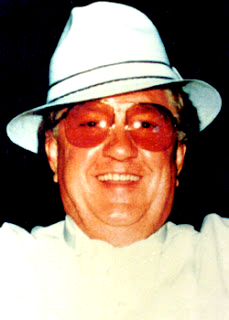 After my 1972 Pop Music Convention, I went on to have twenty-four more successful Conventions, until I retired in 1996. The picture of me shown here is from my final Convention. During those years "The Poe Convention" was considered a "do not miss" affair. Unfortunately also during those years, cocaine and a wide variety of other drugs were running rampant not only in the music industry, but in society in general. That's basically the era where the phrase, "Sex, Drugs and Rock 'n' Roll" was coined. Back in my performing days, doctors would hand out amphetamines like candy and that was the extent of my drug use.
After my 1972 Pop Music Convention, I went on to have twenty-four more successful Conventions, until I retired in 1996. The picture of me shown here is from my final Convention. During those years "The Poe Convention" was considered a "do not miss" affair. Unfortunately also during those years, cocaine and a wide variety of other drugs were running rampant not only in the music industry, but in society in general. That's basically the era where the phrase, "Sex, Drugs and Rock 'n' Roll" was coined. Back in my performing days, doctors would hand out amphetamines like candy and that was the extent of my drug use.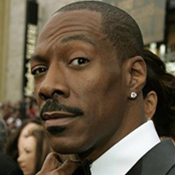 When I look back, there are many Convention highlights that stand out in my mind. In 1972 it was Robert Klein's monologue; in 1975 it was Carol Channing's monologue; 1977 it was Jimmy Buffett's live performance; in 1983 it was a monologue by Eddie Murphy (shown here); in 1989 it was a live performance by The Moody Blues; in 1990 it was Howard Cosell's Keynote Address; in 1991 it was a solo piano performance by Bruce Hornsby; in 1992 it was Larry King's Keynote Address; in 1993 it was John Mellencamp's live performance; and in 1995 it was Crowded House performing live.
When I look back, there are many Convention highlights that stand out in my mind. In 1972 it was Robert Klein's monologue; in 1975 it was Carol Channing's monologue; 1977 it was Jimmy Buffett's live performance; in 1983 it was a monologue by Eddie Murphy (shown here); in 1989 it was a live performance by The Moody Blues; in 1990 it was Howard Cosell's Keynote Address; in 1991 it was a solo piano performance by Bruce Hornsby; in 1992 it was Larry King's Keynote Address; in 1993 it was John Mellencamp's live performance; and in 1995 it was Crowded House performing live. My most vivid memory, however, is of our 1985 convention with Don Imus as Master of Ceremonies. I specifically asked him not to do any ethnic jokes, as we had a variety of ethnic groups in our audience. If you knew Imus this was a huge mistake on my part. Imus took the stage and proceeded to roast all nationalities. The waiters and waitresses were in the process of serving our meals, but they took offense to Imus' jokes and they all walked out refusing to serve. It was not that big a deal to our audience of radio and record executives since they all understood that this was just Imus' schtick. However, the waiters and waitresses had no understanding at all of what had just transpired. It cost me $15,000 for the meals anyway, and I still never got anything to eat.
My most vivid memory, however, is of our 1985 convention with Don Imus as Master of Ceremonies. I specifically asked him not to do any ethnic jokes, as we had a variety of ethnic groups in our audience. If you knew Imus this was a huge mistake on my part. Imus took the stage and proceeded to roast all nationalities. The waiters and waitresses were in the process of serving our meals, but they took offense to Imus' jokes and they all walked out refusing to serve. It was not that big a deal to our audience of radio and record executives since they all understood that this was just Imus' schtick. However, the waiters and waitresses had no understanding at all of what had just transpired. It cost me $15,000 for the meals anyway, and I still never got anything to eat. 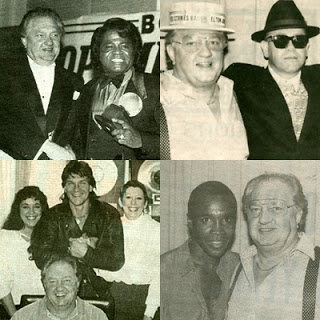 I must say that I have had one tremendous ride in my fifty years of show business. I'm grateful I was able to retire and leave the business on my own terms. I have met, known, dined with, and/or received one of my 103 Gold Records from some of the greatest celebrities in the world, including Sir Andrew Lloyd Webber, Sir Paul McCartney, Sir Elton John (pictured top right), Oprah Winfrey, Elvis Presley, Michael Jackson, Bruce Springsteen, Dolly Parton, Howard Cosell, Larry King, David Geffen, Clive Davis, Doug Morris, Don Ienner, Charles Koppelman, Richard Palmese, Frank Dileo, Ron Alexenburg, Jim Schwartz, Muhammad Ali, Joe Frazier, Sugar Ray Leonard (pictured bottom right), Roosevelt Grier, Jim Brown, James Brown (pictured top left), Celine Dion, Cyndi Lauper, Kenny Rogers, Carol Channing, Johnny Cash, Ricky Nelson, John Travolta, Bruce Willis, Eddie Murphy, Patrick Swayze (pictured bottom left with RCA's Lisa Velasquez and my executive assistant Bonnie Rollison), and Jimmy Connors, to drop a few names. It truly was "The Golden Age of Rock 'n' Roll"!
I must say that I have had one tremendous ride in my fifty years of show business. I'm grateful I was able to retire and leave the business on my own terms. I have met, known, dined with, and/or received one of my 103 Gold Records from some of the greatest celebrities in the world, including Sir Andrew Lloyd Webber, Sir Paul McCartney, Sir Elton John (pictured top right), Oprah Winfrey, Elvis Presley, Michael Jackson, Bruce Springsteen, Dolly Parton, Howard Cosell, Larry King, David Geffen, Clive Davis, Doug Morris, Don Ienner, Charles Koppelman, Richard Palmese, Frank Dileo, Ron Alexenburg, Jim Schwartz, Muhammad Ali, Joe Frazier, Sugar Ray Leonard (pictured bottom right), Roosevelt Grier, Jim Brown, James Brown (pictured top left), Celine Dion, Cyndi Lauper, Kenny Rogers, Carol Channing, Johnny Cash, Ricky Nelson, John Travolta, Bruce Willis, Eddie Murphy, Patrick Swayze (pictured bottom left with RCA's Lisa Velasquez and my executive assistant Bonnie Rollison), and Jimmy Connors, to drop a few names. It truly was "The Golden Age of Rock 'n' Roll"! Here is the front cover of the final issue of Pop Music Survey, issue #1,323. It shows Dolly Parton and myself from an early Convention.
Here is the front cover of the final issue of Pop Music Survey, issue #1,323. It shows Dolly Parton and myself from an early Convention.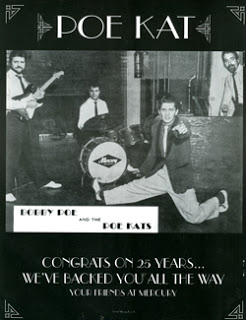 Here is the back cover of the final issue of Pop Music Survey. The "Heads" of Mercury Records' Promotion Staff at the time, (left to right: David Leach, Steve Ellis and Tony Smith) got creative and had their heads superimposed on the heads of The Poe Kats.
Here is the back cover of the final issue of Pop Music Survey. The "Heads" of Mercury Records' Promotion Staff at the time, (left to right: David Leach, Steve Ellis and Tony Smith) got creative and had their heads superimposed on the heads of The Poe Kats. One of my favorite pictures from a Poe Convention is from 1975. It shows me, Shelby Singleton (Owner of Sun Records) and our Mistress of Ceremonies that year Carol Channing.
One of my favorite pictures from a Poe Convention is from 1975. It shows me, Shelby Singleton (Owner of Sun Records) and our Mistress of Ceremonies that year Carol Channing.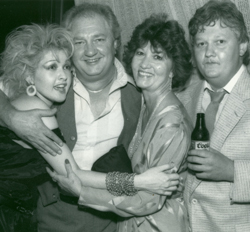 Another of my favorite pictures from a Poe Convention is with (L-R) Cyndi Lauper, me, my wife Ora Mae and my son Bobby, Jr.
Another of my favorite pictures from a Poe Convention is with (L-R) Cyndi Lauper, me, my wife Ora Mae and my son Bobby, Jr.

